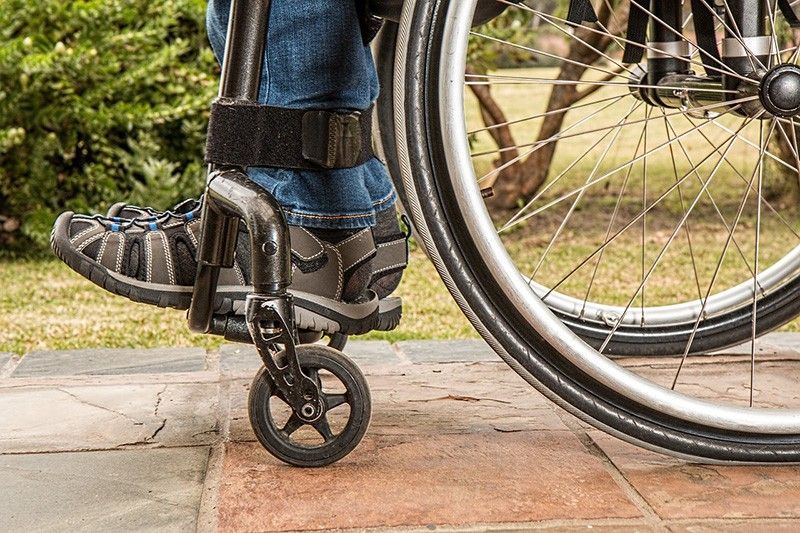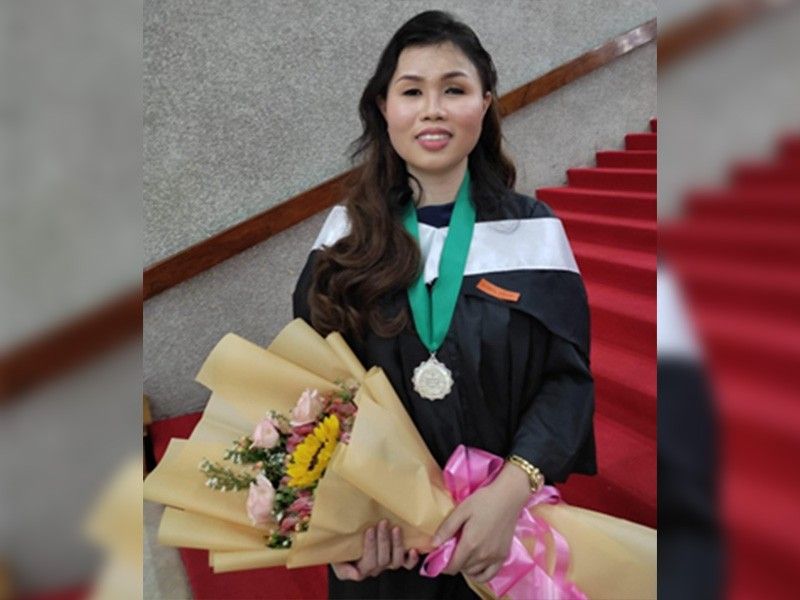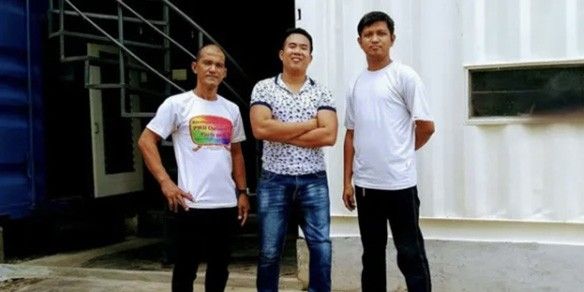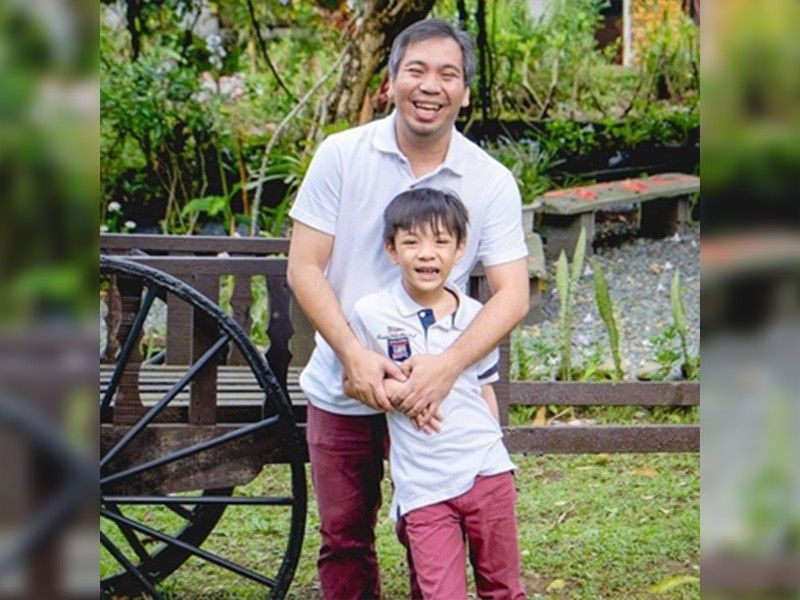Redefining PWDs: From persons with disability to persons we can depend on


Let me tell you a story about two persons born with a different fate from the rest of us-- Bless Adriano and Nerwil Pacao. They were born physically able, but life suddenly cast a twist that changed their lives forever. Bless is diagnosed with systemic lupus and has been blind for 10 years now. Nerwil, on the other hand, got into an accident which cost him to lose his right leg.
In a political and competitive world, being the best and brightest among the rest is needed to survive. Judging someone on how they look comes naturally to people. Life’s leisures and luxuries are only for the rich and well-abled. Most of the time, what seems to be a human being’s basic needs and happiness are something that a person with disability has to look, beg, and work twice as hard for.
This is a sad reality. And this is how Bless and Nerwil, two different persons who are in the same spectrum, living as persons with disabilities, have LIVED.
The blessing that came to Bless
Maria Bless Adriano was in second year high school when she lost her eyesight. Bless woke up one day to a colorless vision seeing only “gray” in her surroundings. After running different tests with an ophthalmologist, Bless found out that the reason for her eye problem was due to a retinal detachment which was a manifestation of her systemic lupus.
Bless has been fighting two different battles for 10 years now. Being the youngest of 8 siblings in a family that isn’t well-off, she grew up dreaming of being able to help and provide well for her big family. What’s even more saddening is that Bless wasn’t the only one with Lupus or autoimmune disease. She has a sister who died at age 18 and a brother diagnosed with discoid lupus. For a time, she believed that losing sight is like losing hope for the future she dreamed of.

But life is a series of ups and downs, Bless was then introduced to Project Inclusion Network (PIN), Unilab Foundation’s initiative which focuses on the upliftment of the skills – and spirit -- of persons with disability (PWDs), helping them realize their full potential and be gainfully employed. Joining PIN as its Project Assistant for its Youth for Disability Leadership Program has been Bless’ gateway from what seems to be a blurry vision of life to a much clearer path of opportunities that awaits her.
The will to walk again

Another beneficiary of PIN is Nerwil Pacao who is now a general manager of CitiHub. It was in 2013 when Nerwil had an accident. A truck bumped the motorcycle he was riding, and this made him lose his right leg. This started his PWD journey. He started attending therapy sessions in 2014 to be able to walk again using prosthesis. Nerwil considers 2015 as the most depressing part of his life. He had a hard time during therapies and getting used to prosthesis was a struggle for him. He thought he will never get his old life back.
But he also knew he shouldn’t stay miserable forever. In 2016, he started looking for people and institutions that support PWDs. He came across PIN, submitted his resume, and suddenly found himself offered a job at CitiHub.
Thanks to his learnings from being an HRM graduate, his job as a residence manager became quite easy for him. His college background has helped him create marketing strategies and manage his operations. He may lack the physical abilities, but his mental ability remains to be his biggest strength. Nerwil might have lost his leg, but not his will to walk again. And joining PIN was his first step.
How Unilab Foundation’s Project Inclusion Network helps PWDs
PIN started in 2013 with a conversation between Unilab Foundation and Grant Javier, the Executive Director of Project Inclusion Network, who’s also a father of two persons with disabilities. Both children are in the autism spectrum; one with Autism and the other one was diagnosed with Aspergers.
Grant’s greatest fear is to leave his children without knowing how to live on their own. He says “Ano na lang ang mangyayari sa anak ko kapag wala na ako.?” This fear and his love as a parent were his motivation in creating PIN with UNILAB Foundation.
The goal of PIN is simple --- to create a space where PWDs can be given opportunities to realize their fullest potential and be treated as equals, enabling them to contribute to society. PIN has been working with different communities to strengthen PWD- opportunities with about 130 partner organizations, who continuously help in education and advocacy projects, to help give PWDs better access to work.

Currently, PIN has provided 3,000 with an improved access to opportunities and reached about 2 million people on their PWD campaigns.
PIN has four pillars.
1. EMPOWERING Persons with Disability - deals with activities and efforts that will equip PWD-jobseekers with the right tools to become active participants of society and advocates of their community
2. ENABLING disability inclusions in organizations - promotes disability inclusion in businesses which are able to train, hire and support PWDs
3. ENGAGING strategic sectors of society – taps like-minded organizations to work together in mapping out solutions in advocating for PWDs
4. ENSURE - The internal structure of PIN must be able to sustain its programs and create resource- generation activities to build more projects and reach more people.
Persons we can depend on
The road to survival and a happy life starts with one’s mindset. Despite the challenges Bless and Nerwil faced, they chose to have faith and remain steadfast. But more than one’s determination, there should be initiatives like PIN which gives life-changing hope to PWDs for better access to opportunities, and for a more inclusive and barrier-free society.
----
Watch Pamilya Talk on Facebook, YouTube and Kumu (@JingCastaneda – 12:00 noon – 1:00 p.m. Monday & Wednesday). You can also follow my social media accounts: Instagram, Facebook, YouTube, Tiktok, Twitter and Kumu. Please share your stories or suggest topics at editorial@jingcastaneda.ph.



















